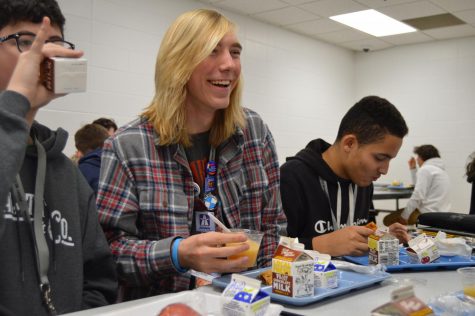Young voters face suppression amidst rising turnout rates
The mayoral election was November 5, and some Perry seniors participated in their first voting experience. Some may have wanted to vote, but did not register in time, or had trouble registering due to financial issues.
According to Tufts University’s Institute for Democracy & Higher Education, voter turnout rates among college students have more than doubled from 2014 to 2018, and with that trend has come voting restriction laws.
“It’s hard to pigeon-hole an entire group as supporting either Democrats or Republicans, but… young people tend to support more liberal policies and are more likely to vote for liberal candidates,” government teacher Patrick Chambers says.
The Institute of Politics at Harvard University’s Kennedy School of Government found in a poll that 45% of people aged 18-24 identified as Democrats.
Increased voter turnout among young people could mean better election odds for the Democratic Party.
The often-used justification for passing voting restriction laws is that it helps to eliminate illegal voting.
“Republicans say they’re trying to protect the election process and make sure that people who don’t have the legal ability to vote are not finding ways to vote,” Chambers says. “That being said, in-person voter fraud is virtually nonexistent.”
The motives behind voting restriction laws may vary, but Republican officeholders often benefit from low voter turnout rates among the young and poor, and Democrats often benefit from those demographics voting in higher numbers.
“[Voting restriction laws] are more of an obstacle towards younger and poorer people, and both of those sections of the population tend to vote towards Democratic candidates,” Chambers says.
In 2017, Indiana passed a law allowing voters to be purged from the voting registry without notification. A judge ruled it as violating the National Voter Registration Act in 2018. In 2016, multiple states enacted laws for automatic voter registration.
This new wave of voting restriction laws is not the first and surely will not be the last. The Voting Rights Act of 1965 made passing such laws much more difficult, but it has been overturned in part.
“We’re beyond the initial volley of these laws,” Chambers says. “With the overturning of parts of the Voting Rights Act of 1965, you’re seeing more of these changes to existing laws.[Southern states] would’ve been doing this stuff a lot sooner had they been legally able to.”



